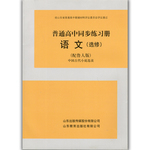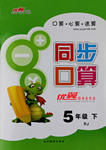题目内容
In meditation(冥想),people sit quietly and focus their attention on their breath .As they breathe in and out ,they attend to their feelings .As thoughts go through their minds. They let them go. Breathe .Let go .Breathe .Let go .
According to a recent study at the Insight Meditation Society in Barre,Massachusetts. Three months of training in this kind of meditation causes a market change in how the brain allocates(分配) attention. It appears that the ability to let go thoughts that come into mind frees the brain to attend to more rapidly changing things and events in the outside world. Expert mediators are better than other people at catching such fast-changing stimuli( 刺激),like facial expressions.
The study provides evidence for changes in the workings of the brain with mental training. People can learn and improve abilities of all sorts with practice, everything from driving to playing the piano. The study has shown that meditation is good for the brain. It appears to reduce pressure and promote a sense of well-being.
In an experiment, 17 volunteers with no meditation experience in the experimental group spent three months meditating 10 to 12 hours a day .A control group also with no meditation experience meditated for 20 minutes a day over the same period .Both groups were then given the tests with two numbers in a group of letters. As both group looked for the numbers , their brain activity was recorded.
Everyone could catch the first number .But the brain recordings showed that the less experienced mediators tended to grasp the first number and hang onto it, so they missed the second number .Those with more experience gave less attention to the first number .as if letting it go ,which led to an increased ability to grasp the second number ,This shows that attention can change with practice.
Just ask Daniel Levision , who meditated for three months as part of the study .”I am a much better listener,” he said . “ I do not get lost in my own personal reaction to what people are saying.”
- 1.
The underlined word “them” in Paragraph 1 refers to __________ .
- A.feelings
- B.minds
- C.people
- D.thoughts
- A.
- 2.
Meditations manage their daily tasks better because they ________ .
- A.are given less pressure
- B.allocate their attention better
- C.have more stimuli for life
- D.practice them more frequently
- A.
- 3.
In the experiment ,volunteers doing meditation for longer hours _____ .
- A.were more likely to catch both of the members
- B.were used to memorizing numbers in groups
- C.usually ignored the first number observed
- D.paid more attention to numbers than to letters
- A.
- 4.
The study proves that _____ .
- A.meditation improves one’s health
- B.brain activity can be recorded
- C.human attention can be trained
- D.mediators have a good sense of hearing
- A.
BCDC
1.由第一段最后几句和第二段第二句可知them 指代 thoughts。
2.由第二段第一句可知,这种冥想训练能使大脑注意力的分配产生变化。
3.由文章倒数第二段可知,有更多经验的那些人对第个数字的注意力相对减少,使得他们更有精力去掌握第二个数字。
4.由倒数第二段最后一句可知,注意可以随着练习发生改变。所以C项正确。
1.由第一段最后几句和第二段第二句可知them 指代 thoughts。
2.由第二段第一句可知,这种冥想训练能使大脑注意力的分配产生变化。
3.由文章倒数第二段可知,有更多经验的那些人对第个数字的注意力相对减少,使得他们更有精力去掌握第二个数字。
4.由倒数第二段最后一句可知,注意可以随着练习发生改变。所以C项正确。

练习册系列答案
 海淀黄冈名师导航系列答案
海淀黄冈名师导航系列答案 普通高中同步练习册系列答案
普通高中同步练习册系列答案 优翼小帮手同步口算系列答案
优翼小帮手同步口算系列答案
相关题目